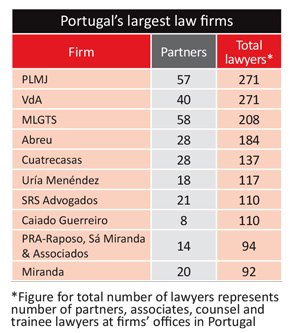Arbitrators ‘excessively cautious’ when making awards
Perceived risk of decisions being challenged means arbitrators are driven to issuing watertight rulings, but critics says few awards are actually annulled and a bolder approach should be adopted
Some arbitrators are being excessively cautious when ruling on cases because of the perception that there is a growing risk of awards being challenged, participants at a recent masterclass hosted by Iberian Lawyer, in association with Wolters Kluwer, in Miami heard.
Attendees – who included arbitration counsel, arbitrators and other dispute resolution experts – called for arbitrators to be more courageous in making efforts to teach parties that arbitrators need to be respected and develop a better understanding of why they make certain decisions. Arbitrators were also urged to be bolder when making decisions, with attendees pointing out that few awards are annulled at present due to procedural issues.
Opinions were divided with regards to the issue of what should be deemed acceptable in terms of the time limits imposed on parties and procedures for the submission of documents. It was argued that because some arbitrators do not prepare sufficiently, they accept everything, and allow too much time for submissions in the name of respecting due process. Participants also said arbitrators should be patient and prepared to have reasonable grounds to support their decision to deny the submission of certain evidence, and have a clear understanding of what is called for with regard to the facts of the case.
Attendees said it was wrong to delay proceedings at one party´s request as the rights of the other party might not be taken into account. Rules are there to be enforced, and arbitrators should not accept new arguments which are no longer relevant in the proceedings. There is a pressing need to find ways of holding parties, or their counsel, accountable for unjustifiably delaying proceedings, attendees agreed.
Striking a balance 
A balance needs to be found between aggressive tribunals trying to achieve cost effective arbitrations and more conservative ones that tend to aim for non-challengeable awards. While awards made by tribunals sitting in Paris or New York are rarely annulled because of due process issues and the fact that arbitrators are able to enforce rules more effectively, in other parts of the world standards are not the same, attendees said. Arbitrators might experience intimidation from counsel, parties and even authorities in certain jurisdictions. This leads to tribunals generally being more prudent because they are primarily concerned with securing enforceable and non-challengeable awards with overall uncertainty increasing the perception of risk. Achieving a careful balance could ensure that all parties are heard, as well as meaning national courts will be reassured that due process was not inhibited in any way.
Participants were told that, in some cases, it seems arbitrators might adhere too rigidly to the rules of the seat or the institution, rules which can be helpful when explaining tribunal decisions to the parties involved. The International Chamber of Commerce Arbitration Court has published some guidelines which allow for flexibility in some particular frameworks, and grant more powers to arbitrators. The International Bar Association has also issued some guiding principles which help arbitrators apply rules flexibly depending on the circumstances, while ensuring parties do not obstruct proceedings unnecessarily.
Event: Due process in arbitration: a shield or a sword?
Location: Miami, Florida, USA
In collaboration with: Wolters Kluwer
Moderator: Carolyn Lamm, White & Case












